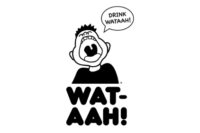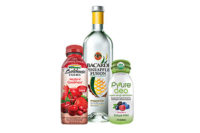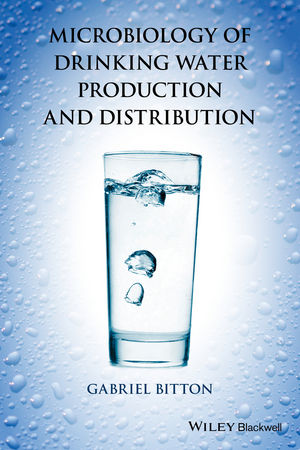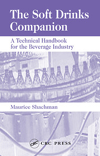As legend has it, the Fountain of Youth is a spring that restores youth to anyone who drinks from it. Because the fountain is a bit difficult to find, many people have settled for beauty treatments such as lotions, serums and plastic surgery. However, what’s arguably more important than looking young is keeping the human mind young, and beverage-makers are creating drinks that help do just that — and they’re not nearly as difficult to find.
Nawgan, a scientifically formulated brain health beverage, is formulated with Cognizin citicoline to enhance concentration and focus, according to St. Louis-based Nawgan Products LLC. Cognizin is a branded form of citicoline produced by Kyowa Hakko USA, New York City.
“Some ingredients work well for young children during their developmental years — an example of this would be choline,” says Karen E. Todd, registered dietitian and director of marketing for Kyowa Hakko USA. “However, as you age, choline is not absorbed the same way for adults and something more is required for older adults. Through our research, we have found that Cognizin citicoline is a preferred nutrient for adults.”
Cognizin’s three primary brain health benefits include: sustained mental energy, enhanced focus and healthy memory function, Todd says. According to studies, healthy adults who consumed Cognizin on a daily basis displayed improved performance on tests of alertness and concentration, as well as brain activity visualized on imaging techniques, she adds.
A new energy gel shot, GungHo, also makes use of the brain health ingredient in its formulation.
“GungHo is the only energy shot or drink that contains natural ingredients at proven effective doses to improve focus and concentration, keep the brain’s energy-producing centers firing, protect healthy brain cell function, sustain healthy cell membranes in the brain and help brain cells communicate by keeping cell membranes in good condition,” says Perry Renshaw, Ph.D. and director of magnetic resonance imaging for the Brain Institute at the University of Utah.
Beverage possibilities
When it comes to improving memory, recognition and learning ability, and reducing anxiety, AIDP Inc., City of Industry, Calif., offers a magnesium compound called Magtein. Magtein is highly soluble, stable, tasteless, odorless, colorless and self-affirmed generally recognized as safe making it ideal for a beverage, says Kathy Lund, director of business development and marketing for AIDP Inc.
According to the Anxiety Disorders Association of America, anxiety disorders are the most common mental illness in the United States, affecting 18 percent of the population. A recent study by neuroscientists at Tsinghua University in Beijing, the University of Texas and the University of Toronto found that Magtein enhances the brain’s ability to reduce fear and anxiety responses, which could provide treatment for anxiety disorders such as social anxiety disorder, post-traumatic stress disorder, panic disorder and specific phobias.
Another study from the Massachusetts Institute of Technology (MIT) and Tsinghua University in Beijing showed that Magtein’s ability to easily cross the blood/brain barrier and increase brain synapses makes it able to improve learning ability, working memory, and short- and long-term memory in rats.
Additionally, the compound might aid in energy, relaxation and sleep, the company says. Currently, more than 70 million people in the United States have sleep problems and the prescription sleep aid market has reached more than $2 billion, according to the National Institute of Health. Because of stress, longer work days, obesity rates and an aging baby boomer generation, sleep issues will continue to grow, experts say.
“[Magtein] helps you go into a deeper sleep because basically the reason why some people can’t sleep is that their brain is overstimulated,” Lund explains. “What Magtein tries to do is to make a better connection with the brain synapses, so when the brain is more connected, there’s less need for stimulation.”
Cognitive health isn’t only about cognitive decline, she says. It’s also about using the brain to its optimum potential, which could include demographics such as long-haul truck drivers who need to stay alert, baby boomers who want to maintain their cognitive function or students who need to focus to study for a big test. Cognitive health products can help with a variety of conditions and situations, Lund says.
Formulations also are being designed that could slow the progression of Parkinson’s disease, a neurodegenerative brain disorder. Last year, Zymes LLC, Hasbrouck Heights, N.J., received a two-year grant from the Michael J. Fox Foundation’s Therapeutics Development Initiative to conduct research on its water-soluble coenzyme Q10 (CoQ10) ingredient. Zymes, in collaboration with the National Research Council of Canada and the University of Windsor in Ontario, is developing a formulation that consists of nano-micellar complex of CoQ10 and pro-drug form of vitamin E. This patented formulation is water-soluble, readily applicable and has shown protection for dopamine nerve cells in pre-clinical models of Parkinson’s disease as a result of its prophylactic application, according to the company. Researchers are testing the effectiveness of water-soluble CoQ10 in halting the progressive loss of dopamine nerve cells in animals, it adds.
The antioxidant CoQ10 has been the subject of investigation as a potentially disease-modifying therapy for Parkinson’s disease for years. Available evidence shows that extremely high doses might be required for an effect; however, Zymes’ formulation might increase CoQ10’s bioavailability in the brain, which could enable use at a lower dosage, the company says.
In addition to CoQ10, Zymes offers omega-3 fatty acids for formulation in liquid nutrition products, which are said to aid in skin, heart and neural brain health, says Ken Beck, director of business development at Zymes.
Keeping taste in mind
Cognitive health ingredients aren’t always the easiest to incorporate into a beverage application. Sometimes off-notes must be considered — especially in the case of omega-3 fatty acids, which can have a fishy taste.
“Our patented formulation for solubilizing omega-3s in water allows us to add fish oil to beverages that remain clear and do not taste like fish,” explains Shelley Weinstock, senior vice president of research and scientific affairs at Zymes.
Because many cognitive health ingredients are actually fine chemicals, most of them have some kind of off-note, says Ram Chaudhari, senior executive vice president and chief scientific officer at Fortitech Inc., Schenectady, N.Y. However, options are available to overcome any taste issues via emulsification, nanotechnology or microencapsulation, he says.
Fortitech offers dozens of vitamins, minerals, amino acids, nucleotides, nutraceuticals and herbs that can aid in cognitive health. Some of the most popular options include omega-3, CoQ10, ultralipic acid, flax seed, carotenoids, vitamins C and E,
B vitamins, folic acid, choline and phospholipids, Chaudhari says. A new addition to the functional category is the antioxidant circumine, which is an anti-inflammatory agent that helps to prevent plaque in the brain, he adds.
Chaudhari suggests that beverage-makers can narrow down the ingredients they would like to use by considering whether they would like a clear or cloudy beverage, and the type of format. Once ingredients have been selected, the challenge becomes balancing the appropriate amount of functional ingredients in a beverage application, he says.
“If you add a high amount, of course it will do some good and it will maintain the value-added proposition, [but] part of the problem is it’s not going to taste good,” he says.
It’s important to have enough of a nutrient in a beverage so that consumers will notice a change in their cognitive function, while also using available technology to give consumers the taste they’re seeking.
Because taste is so important in beverage formulations, DSM Nutritional Products, Parsippany, N.J., offers an alternative for a typically bitter or astringent ingredient: green tea extract.
The company offers its Teavigo brand of EGCG, a
90 percent EGCG that beverage-makers can formulate into their products with reduced bitterness and pleasant organoleptic properties, says Lynda Doyle, marketing director for DSM.
Nutrients with benefits
DSM also offers other ingredients with cognitive benefits, including carotenoids like CaroCare and Quali-Carotene, FloraGlo lutein, Quali-B B vitamins, Quali-D vitamin D, and omega-3 fatty acids DHA and EPA under the life’sDHA and ROPUFA brands.
“Cognitive health ingredients help consumers at all ages,” Doyle says. “For example, pregnant and lactating women need higher levels of DHA to help support fetal and infant brain development, and DHA also helps support learning capacity, attention and behavior in children.”
For baby boomers and older consumers, DHA might help to improve memory and learning. A placebo-controlled study published in Alzheimer’s & Dementia: The Journal of Alzheimer’s Association found that 900 mg. of algal DHA supplementation each day for six months resulted in improved memory and learning in healthy older adults with mild memory complaints, Doyle notes.
Additionally, B vitamins can be used for energy metabolism and to reduce brain homocysteine levels; vitamin D is associated with better cognitive performance and can help overcome seasonal mood decline in the winter; carotenoids aid in cognitive function in aging adults; lutein, in combination with omega-3, can improve executive function and verbal fluency in older women; and beta-carotene helps maintain cognitive performance in the elderly, Doyle says.
Using DSM’s Actilease technology, beverage-makers have the ability to use oil-soluble nutrients in their products. The company’s cognitive health ingredients can be used in a variety of beverage categories, including ready-to-drink beverages, powder mixes and dairy drinks, DSM says.
Interest in cognitive health ingredients has been steadily increasing, due in part to consumer recognition of omega-3s, says Heather Biehl, manager of the Health Ingredient Technology & Solutions team at Wild Flavors Inc., Erlanger, Ky.
In addition to the popular omega-3 fatty acids, Wild Flavors offers ingredients such as L-theanine, St. John’s Wort and gamma amino butyric acid (GABA), which help to reduce stress and improve mood; yerba mate and guarana, which are natural sources of caffeine that help to stimulate the mind; and ginkgo biloba and gotu kola, which help increase blood flow to the brain and support memory. Like omega-3, phosphatidylserine is an important structural component of brain cell membranes, Biehl says. Because phosphatidylserine thrives in a water-and-oil environment, it can be difficult to incorporate into a beverage. However, Wild Flavors’ emulsion technology enables it to be used in a wide range of beverage applications, she adds.
Consumers are looking for functional ingredients in convenient delivery formats such as beverages, says Petra Tanos, manager of extract sales in North America for Martin Bauer Group, Secaucus, N.J.
“Consumers are looking for more than just a wake-me-up — they want mental clarity; they want to be focused and alert,” she says.
To address this need, Martin Bauer Group offers a range of botanical raw materials and liquid and powder extracts that can help improve cognitive performance via smoothies, tea bags, shots, gels, dairy and ready-to-drink beverages. The company’s most well-known ingredient is ginkgo biloba, she says. Other popular ingredients that offer cognitive health benefits are ginseng, lemon balm, guarana and green tea.
In addition to ginkgo biloba, Sam Wright IV, chief executive officer of Crowley, La.-based The Wright Group, notes that curcumin and grape seed extract have become more widely used in recent years.
“Some of our more popular ingredients in mental acuity formulations include DHA from fish oil and algal sources, phosphatidyl choline, citicoline, L-carnitine, acetyl carnitine and a range of B vitamins as well as antioxidants,” Wright says.
He adds that caffeine and guarana aid in improving alertness.
In the last century, life expectancy has grown to an average of 77 years from 47 years, according to AIDP. An increase in longevity combined with the aging baby boomer generation has led to an increase in demand for cognitive health products.
“In light of the rapid aging of the populations in all developed markets, we foresee dramatic growth in any products addressing the chronic health conditions which are inevitable in an older population,” Wright says. “Cognitive function is very high on the list of these concerns. In some surveys, it is actually at the top of the list.” BI









